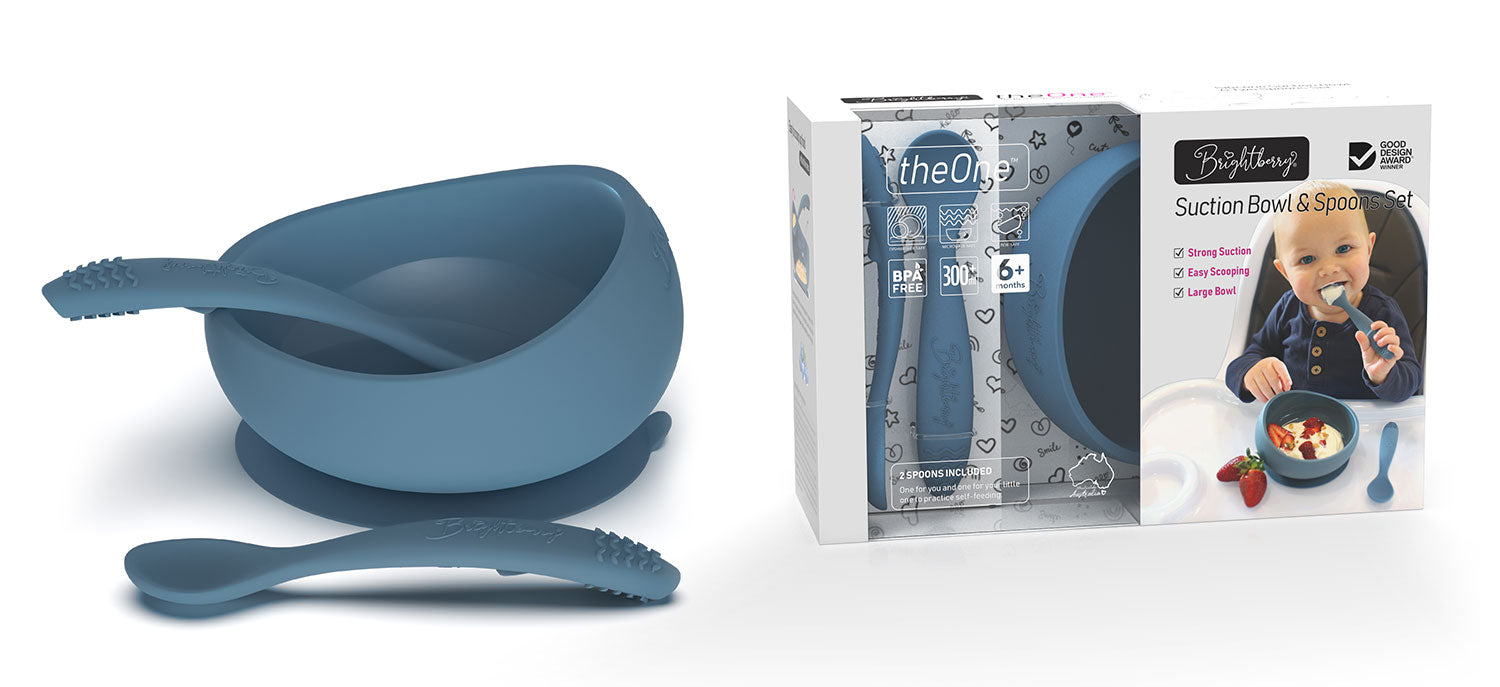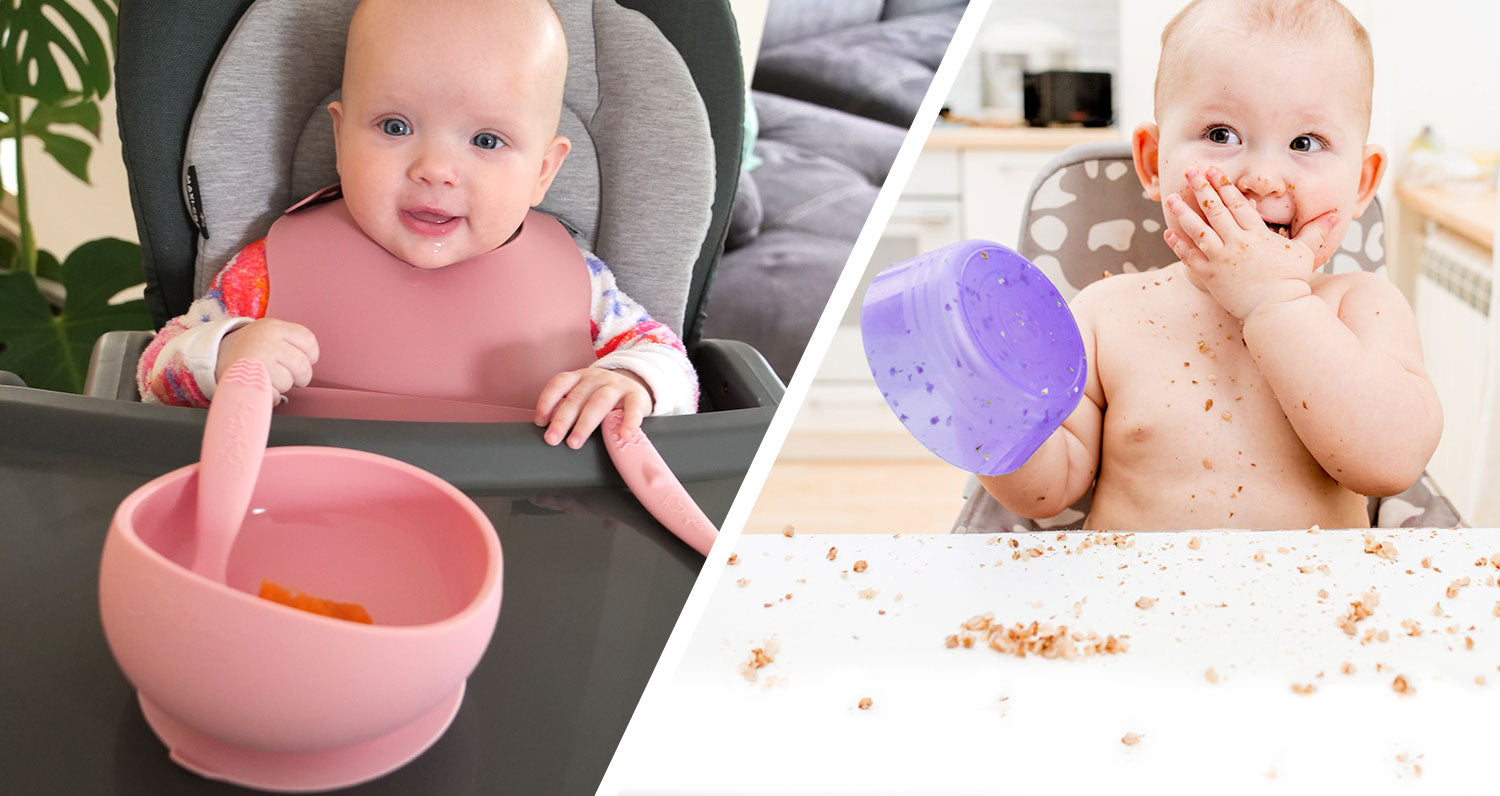Are Silicone Bowls Safe for Babies?
As parents, we prioritise our children’s safety, especially regarding the utensils they use. When babies start eating solid foods, choosing the right tableware is crucial. Although plastic may seem convenient, it can expose your child to harmful chemicals like BPA and phthalates. That’s why silicone baby feeding kits are a safer choice than plastic. They offer a non-toxic, durable, and heat-resistant alternative, ensuring your child’s health and safety during mealtime.
The Hidden Dangers of Plastic Tableware for Babies: Why You Should Choose Silicone Instead
The Risks of Plastic Tableware
Plastic is widely used in baby products because it’s lightweight, shatterproof, and easy to clean. However, it often contains harmful chemicals like Bisphenol A (BPA) and phthalates, which are used to make plastic more flexible and durable. These chemicals can leach into food, especially when the plastic is heated or scratched. Exposure to these chemicals can be particularly harmful for babies whose bodies are still developing.
Harmful Chemicals in Plastic
Bisphenol A (BPA): This chemical can interfere with the body’s hormonal system by mimicking estrogen. Studies have linked BPA exposure to developmental problems, behavioural issues, and an increased risk of obesity and metabolic disorders in infants.
Phthalates: Often used to soften plastic, phthalates have been associated with respiratory issues, allergies, and reproductive problems. They can leach into food when plastic tableware is heated or damaged.
Even BPA-free plastics aren’t entirely safe, as they may contain other bisphenols, such as BPS or BPF, which have similar harmful effects.
Silicone vs. Plastic: Which material is safer for your kids?
Silicone is a synthetic material made from silicon, oxygen, carbon, and hydrogen. It’s non-toxic and does not leach harmful chemicals into food, making it a safer alternative to plastic. Here are some key benefits of using silicone vs plastic for baby tableware:
- Non-toxic and Chemical-Free: Silicone doesn’t contain BPA, phthalates, or PVC. It’s stable and inert, meaning it won’t react with food or liquids.
- Heat and Cold Resistance: Silicone can withstand extreme temperatures, making it safe in the microwave, oven, and freezer.
- Durability and Safety: Silicone is flexible and virtually unbreakable, reducing the risk of injury from broken tableware.
- Easy to Clean: It’s typically dishwasher-safe and resistant to stains and odours.
These qualities make silicone an excellent material for baby bowls, plates, and utensils. However, it is essential to choose high-quality silicone products tested for safety.
Features to Look for in a Silicone Baby Bowl Set
When choosing a silicone tableware set or even divided plates for picky eaters, consider these features to ensure you’re getting a product that is safe, functional, and durable:
- Safety and Non-Toxic Materials: Look for products made from 100% food-grade silicone. These items should be free from BPA, phthalates, and other harmful chemicals and, ideally, independently tested for safety.
- Ergonomic Design: A well-designed bowl or spoon can help your child develop self-feeding skills. Bowls with an ergonomic shape make it easier for little hands to scoop food, encouraging independence during mealtimes.
- Strong Suction Base: Mealtime with a baby can be messy. A suction base can keep the bowl securely in place, preventing spills and making the experience less stressful for you and your child.
- Multi-Purpose Utensils: Some silicone utensils, like spoons, can double as teething rings, providing relief for sore gums while also being functional for feeding.
- Durability: Choose products that are designed to grow with your child. A large, durable bowl can be used from infancy through toddlerhood, saving you the hassle and expense of frequent replacements.
- Ease of Cleaning: Dishwasher-safe tableware saves time and effort. Look for silicone products that won’t absorb stains or odours, so they stay fresh and hygienic after each use.
- Aesthetics and Functionality: While not as critical as safety or functionality, the design and colour of your baby’s tableware can make mealtime more enjoyable. Bright, attractive colours can engage your child and excite them to eat.
These features illustrate the qualities to look for when selecting a silicone tableware set, ensuring it’s safe, practical, and long-lasting.
Safe Tableware Alternatives: Bamboo and Stainless Steel
While silicone is an excellent choice for many families, it’s not the only safe alternative to plastic. Bamboo and stainless steel are two other materials that are gaining popularity for baby tableware.
Bamboo Tableware
Bamboo is a renewable resource that’s biodegradable and compostable, making it an eco-friendly choice. Bamboo tableware often has a natural, organic look and feel, and it’s lightweight and easy to handle. However, bamboo dishes are usually coated with a food-safe finish to make them water-resistant. Hence, choosing products that use non-toxic, child-safe coatings is essential.
Bamboo has natural antibacterial properties, which can help reduce the risk of bacterial growth in dishes. However, bamboo tableware is not as heat-resistant as silicone and should not be used in the microwave or dishwasher. Hand washing is recommended to maintain its durability and appearance.
Stainless Steel Tableware
Stainless steel is another excellent option for parents looking for a durable, non-toxic alternative to plastic. It’s lightweight, won’t break or chip, and doesn’t retain odours or flavours. Stainless steel is also resistant to stains and scratches, making it a hygienic choice for baby tableware.
One downside of stainless steel is that it can be heavier and more rigid than other materials, which might be better for young children. Choosing high-quality stainless steel free from lead and other heavy metals is also essential.

Frequently Asked Questions
Is silicone better for babies than plastic?
Silicone is better for babies than plastic because it is non-toxic, durable, and free from harmful chemicals like BPA and phthalates.
Are silicone bowls suitable for babies?
Yes, silicone bowls are suitable for babies as they are safe, heat-resistant, and free from harmful chemicals.
Is silicone or plastic spoons better for babies?
Silicone spoons are better for babies than plastic because they are soft, safe, and free from toxic chemicals.
Are silicone utensils suitable for babies?
Yes, silicone utensils are good for babies. They are non-toxic, durable, and gentle on a baby’s gums and teeth.













